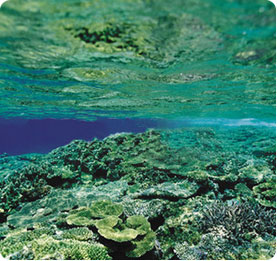- Chlorella is a type of algae that grows in fresh water. The whole plant is used to make nutritional supplements and medicine.
- Most of the chlorella that is available in the U.S. is grown in Japan or Taiwan. It is processed and made into tablets and liquid extracts. These extracts contain “chlorella growth factor,” which is described as a water-soluble extract of chlorella containing chemicals including amino acids, peptides, proteins, vitamins, sugars, and nucleic acids.
- The cell wall of chlorella must be broken down before people can digest it.
Contents
Uses
As a medicine, chlorella is used for:
- Preventing cancer
- Reducing radiation treatment side effects
- Stimulating the immune system
- Improving response to flu vaccine
- Increasing white blood cell counts (especially in people with HIV infection or cancer)
- Preventing colds
- Protecting the body against toxic metals such as lead and mercury
- Slowing the aging process.
- To increase “good” bacteria in the intestine in order to improve digestion
- To help treat ulcers
- Colitis
- Crohn’s disease
- Diverticulosis
- Constipation
- Bad breath
- Hypertension
- To reduce cholesterol
- To increase energy
- Detoxify the body
- As a source of magnesium to promote mental health
- Relieve premenstrual syndrome (PMS)
- Reduce asthma attacks
- Fibromyalgia.
- Chlorella is applied to the skin for treating skin ulcers, rashes caused by radiation treatment, and a sexually transmitted disease called trichomoniasis.
Benefits
- Antioxidant
- Chlorella is a good source of protein, fats, carbohydrates, fiber, chlorophyll, vitamins, and minerals.
Cautions
- Chlorella is POSSIBLY SAFE when taken by mouth, short-term (up to 2 months). The most common side effects include diarrhea, nausea, gas (flatulence), green discoloration of the stools, and stomach cramping, especially in the first week of use.
- Chlorella has caused serious allergic reactions, including asthma and other dangerous breathing problems.
- Chlorella can cause skin to become extra sensitive to the sun. Wear sunblock outside, especially if you are light-skinned.
- Pregnancy and breast-feeding: There is not enough reliable information about the safety of taking chlorella if you are pregnant or breast feeding. Stay on the safe side and avoid use.
- Iodine sensitivity: Chlorella can contain iodine. Therefore, chlorella might cause an allergic reaction in people sensitive to iodine.
- Allergy to molds: Chlorella might cause an allergic reaction in people who are also allergic to molds.
- Weak immune system (immunodeficiency): There is a concern that chlorella might cause “bad” bacteria to take over in the intestine of people who have a weak immune system. Be careful with chlorella if you have this problem.
- “Autoimmune diseases” such as multiple sclerosis (MS), lupus (systemic lupus erythematosus, SLE), rheumatoid arthritis (RA), or other conditions: Chlorella might cause the immune system to become more active, and this could increase the symptoms of autoimmune diseases. If you have one of these conditions, it’s best to avoid using chlorella.
Interactions
Moderate Interaction Be cautious with this combination:
- Medications that decrease the immune system (Immunosuppressants) interacts with CHLORELLA: Chlorella might increase the immune system. By increasing the immune system, chlorella might decrease the effectiveness of medications that are used to decrease the immune system.
Some medications that decrease the immune system include azathioprine (Imuran), basiliximab (Simulect), cyclosporine (Neoral, Sandimmune), daclizumab (Zenapax), muromonab-CD3 (OKT3, Orthoclone OKT3), mycophenolate (CellCept), tacrolimus (FK506, Prograf), sirolimus (Rapamune), prednisone (Deltasone, Orasone), corticosteroids (glucocorticoids), and others.
- Warfarin (Coumadin) interacts with CHLORELLA: Chlorella contains large amounts of vitamin K. Vitamin K is used by the body to help blood clot. Warfarin (Coumadin) is used to slow blood clotting. By helping the blood clot, chlorella might decrease the effectiveness of warfarin (Coumadin). Be sure to have your blood checked regularly. The dose of your warfarin (Coumadin) might need to be changed.
Other Names
Algue Verte d’Eau Douce, Bulgarian Chlorella, Bulgarian Green Algae, Chinese Chlorella, Chlorella Algae, Chlorella pyrenoidosa, Chlorella vulgaris, Chlorelle, Clorela, Freshwater Green Algae, Freshwater Seaweed, Green Alga, Green Algae, Japanese Chlorella, Seaweed, Yaeyama Chlorella.
References
Source: WebMD, “Chlorella”, www.webmd.com/vitamins-supplements/

